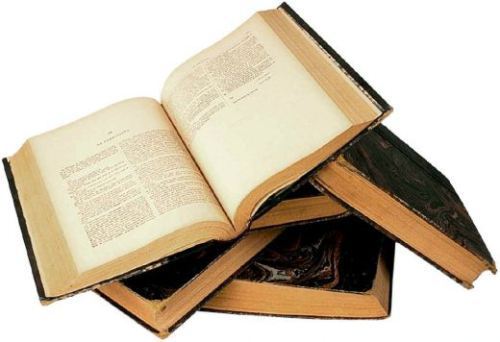30 Essential Books for Every Writer
Every writer I know has a bookshelf full of books they’ve purchased to help inspire the writing process. In my case, I

Photo credit: Hubpages
have so many, I’ve pretty much lost track of them.
Except for those that I can’t write without. In my office, I have my computer table, an oak rolltop desk close enough my left elbow bumps it when I really get going on the keyboard and behind me, about two feet away, a floor-to-ceiling bookshelf of reference books. Those books are constantly ibn motion. I pull them out by piles, stack them on my desk and riffle through them to augment partikcular parts of my stories. Sometimes, I’m looking for facts on nature, animals, buildings. Other times, I’m working through some prickly syntax. Either way, there are those books I can’t write without.
Here’s my list. Read through it. Tell me what your list looks like:
Bill Bryson’s Dictionary for Writers and Editors, by Bill Bryson
Blockbuster Plots: Pure and Simple, by Martha Alderson
Careful Writer: A Modern Guide to English Usage, by Theodore Bernstein
Creating Character Emotions: Writing compelling fresh approaches that express your characters’ true feelings, by Ann Hood
Elements of Style by EB White
First Five Pages: A Writer’s Guide to Staying Out of the Rejection Pile, by Noah Lukeman
Garner’s Modern American Usage, by Bryon Garner
How to Write A D*** Good Novel, by James Frey
Lexicon, by William F. Buckley Jr.
Marshall Plan for Novel Writing: A 16-step program guaranteed to take you from idea to completed manuscript, by Evan Marshall
National Audubon Society Field Guide
New York Times Practical Guide to Practically Everything
New York Times Guide to Essential Knowledge
Novel Writer’s Toolkit: A guide to writing great fiction and getting it published, by Bob Mayer
Oxford American Writer’s Thesaurus
Oxford Book of Aphorisms, by John Gross
Oxford Concise Dictionary of English Etymology
Oxford Dictionary of Difficult Words
Penguin Dictionary of Epigrams, by MJ Cohen
Please Understand Me II: Temperament, Character, Intelligence, by David Keirsey
Roget’s 21st Century Thesaurus
Self-Editing for Fiction Writers, by Renni Browne
Synonym Finder, by J. I. Rodale
Webster Dictionary
Writer’s Coach: An Editor’s Guide to Words That Work, by Jack Hart
Writer’s Guide to Character Traits, by Linda Edelstein
Writing from A to Z, by Sally Ebest
Writing the Blockbuster Novel , by Albert Zuckerman
Writing Fiction: A Guide to Narrative Craft , by Janet Burroway
Writing the Breakout Novel: Insider advice for taking your fiction to the next level , by Donald Maass
Writing the Novel from Plot to Print, by Lawrence Block
The links are to book reviews I’ve done. It’ll be a while before I complete the entire list.
I’d love to hear your list.
Jacqui Murray is the editor of a technology curriculum for K-sixth grade, creator of two technology training books for middle school and four ebooks on technology in education. She is the author of Building a Midshipman , the story of her daughter’s journey from high school to United States Naval Academy. She is webmaster for six blogs, an Amazon Vine Voice book reviewer, a columnist for Examiner.com , Editorial Review Board member for Journal for Computing Teachers, Cisco guest blog, IMS tech expert, and a bi-weekly contributor to Write Anything. Currently, she’s editing a thriller for her agent that should be out to publishers this summer. Contact Jacqui at her writing office or her tech lab, Ask a Tech Teacher.
Filed under: authors, book reviews, homeschool, words, writers resources, writing Tagged: books for writers, writers resources, writers toolkit




